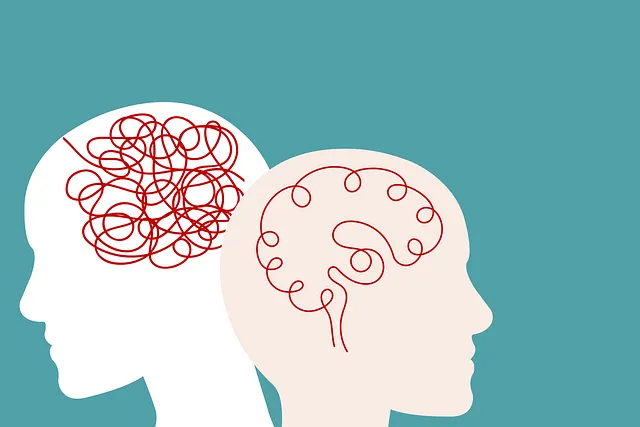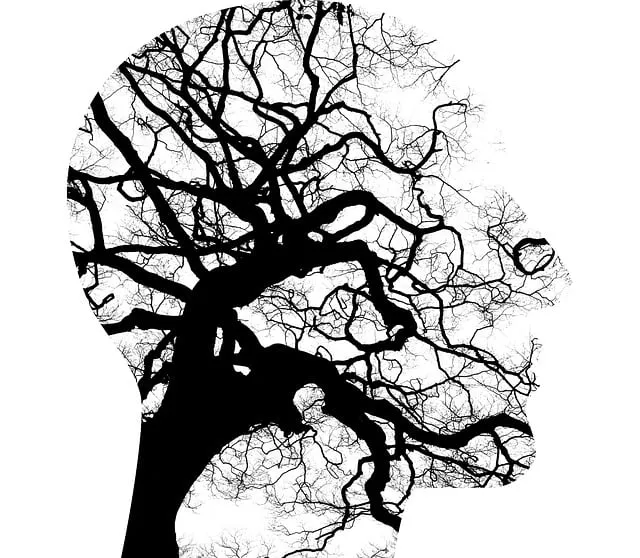Cultural competency in healthcare, crucial for equitable mental health services, is addressed by Kaiser Permanente's Englewood phone-based program through tailored initiatives like Trauma Support Services and Emotional Intelligence training. These efforts aim to overcome biases, improve patient outcomes, and strengthen community connections. The comprehensive training program includes workshops, risk assessments, and evidence-based practices, fostering culturally sensitive care accessible via the Kaiser Permanente mental health phone number Englewood. Evaluation methods assess knowledge gain, attitude changes, and improved patient outcomes, ensuring tailored initiatives meet diverse needs.
Cultural competency training is an essential aspect of modern healthcare, especially with diverse patient populations. This article explores the critical need for such training, focusing on mental health care access and addressing cultural biases. We delve into successful initiatives like Kaiser Permanente Englewood’s approach, providing valuable resources. Furthermore, it discusses effective strategies to enhance cultural sensitivity in practice and evaluation methods to measure program success. For more information on accessing mental health services, contact the Kaiser Permanente mental health phone number Englewood.
- Understanding Cultural Competency in Healthcare: A Necessary Framework
- The Impact of Cultural Biases on Mental Health Care Access
- Kaiser Permanente Englewood's Approach to Training and Resources
- Effective Strategies for Improving Cultural Sensitivity in Practice
- Measuring Success: Evaluation Methods for Cultural Competency Programs
Understanding Cultural Competency in Healthcare: A Necessary Framework

Cultural competency in healthcare is a critical framework that recognizes and respects the diverse cultural backgrounds, beliefs, and values of patients. In today’s diverse society, healthcare providers must be equipped to deliver quality care that addresses the unique needs of every patient, regardless of their ethnic, racial, or cultural identity. This involves understanding and appreciating different perspectives on health and wellness, as well as being able to communicate effectively across cultures.
At organizations like Kaiser Permanente, mental health phone services in Englewood play a vital role in fostering cultural competency. By offering accessible Trauma Support Services and promoting Inner Strength Development through Emotional Intelligence, these initiatives ensure that patients from all walks of life receive care tailored to their specific needs and experiences. This holistic approach not only enhances patient outcomes but also strengthens the bond between healthcare providers and the communities they serve.
The Impact of Cultural Biases on Mental Health Care Access

Cultural biases can significantly impact access to mental health care services, as they often shape the way healthcare providers interact with diverse patient populations. These biases may lead to misperceptions and misunderstandings, hindering the delivery of culturally sensitive and effective treatments. For instance, a provider’s implicit associations or stereotypes about certain ethnic or cultural groups could influence their assessment and diagnosis, potentially resulting in incorrect or delayed treatment for patients seeking mental health support.
In communities like Englewood, where diversity is prevalent, healthcare providers must be trained to recognize and address these biases. The Kaiser Permanente mental health phone number Englewood serves as a resource for individuals seeking professional help, but ensuring equitable access requires cultural competency training. By learning to navigate cultural differences, providers can foster trust, improve communication, and ultimately support the emotional regulation and resilience-building necessary for enhancing mental wellness among all patients, regardless of their background.
Kaiser Permanente Englewood's Approach to Training and Resources

Kaiser Permanente Englewood takes a comprehensive approach to cultural competency training, recognizing the critical role it plays in delivering quality healthcare. They offer a diverse range of resources and programs tailored to their unique patient population. One notable initiative is their focus on mental health services, with a dedicated phone line for those seeking support—the Kaiser Permanente mental health phone number Englewood—which provides easy access to professional assistance.
The training includes workshops and seminars focusing on anxiety relief and self-esteem improvement, ensuring healthcare providers are equipped to address the psychological needs of diverse communities. Additionally, they conduct regular risk assessments for mental health professionals to mitigate potential risks and challenges in providing care. This holistic training model empowers staff to offer more personalized and culturally sensitive services.
Effective Strategies for Improving Cultural Sensitivity in Practice

Improving cultural sensitivity in healthcare practices is a multifaceted approach that requires dedicated training and ongoing support. Kaiser Permanente, known for its comprehensive care models, emphasizes the importance of this training, especially within its mental health services in areas like Englewood. One effective strategy involves exposing professionals to diverse communities and their unique cultural contexts. This can be achieved through role-playing scenarios, case studies, and community partnerships, enabling providers to better understand and navigate different patient backgrounds.
Additionally, incorporating evidence-based practices such as stress management techniques and trauma-informed care can significantly enhance cultural competency. Mental health professionals should learn effective communication strategies that promote open dialogue and build trust with patients from various ethnic and cultural groups. Regular risk assessments for mental health practitioners are also crucial to identify potential biases and triggers, ensuring a safe and inclusive environment for both staff and clients.
Measuring Success: Evaluation Methods for Cultural Competency Programs

Evaluating the success of cultural competency training programs is crucial to ensure they meet their intended goals and positively impact healthcare delivery. Measuring effectiveness can be done through various methods, including pre- and post-training assessments, participant feedback forms, and long-term follow-up studies. These evaluations should focus on key areas such as knowledge gain, attitude changes, and improved patient outcomes. For instance, at Kaiser Permanente in Englewood, researchers might assess the program’s success by gauging participants’ understanding of cultural nuances and their application in providing mental health services.
One effective technique is to track improvements in emotional well-being promotion and inner strength development among trainees. Additionally, assessing the acquisition of social skills training can provide valuable insights into the program’s overall impact. These evaluation methods not only help identify successful components but also areas for improvement, ensuring that cultural competency initiatives are tailored to meet diverse patient needs.
Healthcare provider cultural competency training is no longer a choice, but an imperative. As evidenced by the impact of cultural biases on access to mental health care, addressing these issues through comprehensive programs like those offered by Kaiser Permanente Englewood is crucial. By implementing effective strategies and utilizing evaluation methods, healthcare organizations can foster more inclusive environments that improve patient outcomes. For those seeking support in mental health, resources such as the Kaiser Permanente mental health phone number Englewood can serve as a vital first step towards navigating cultural competent care.






